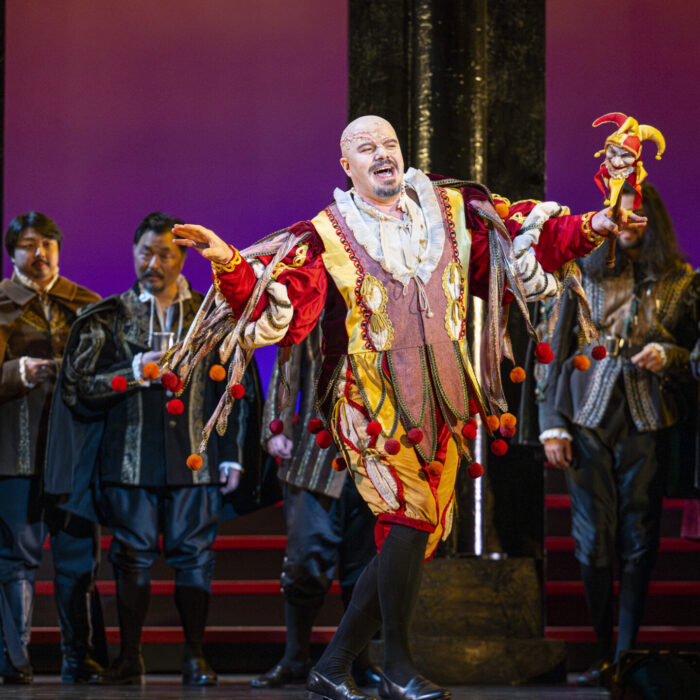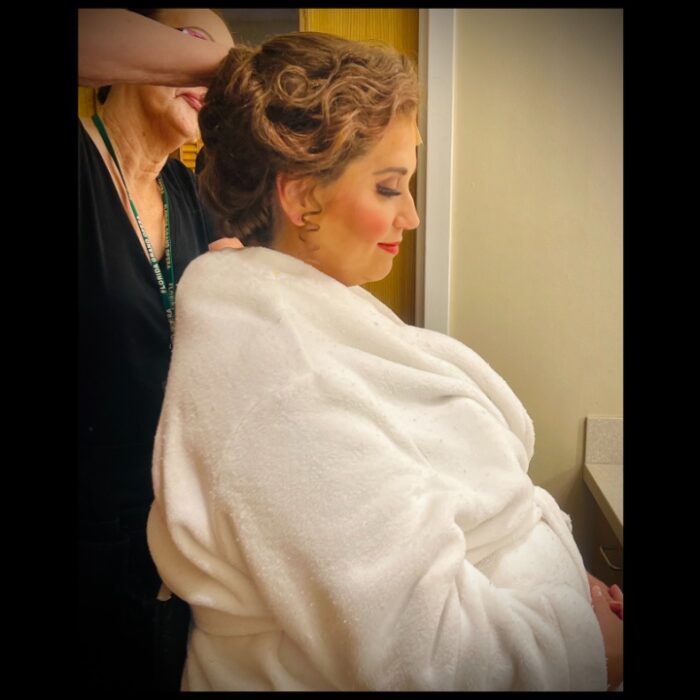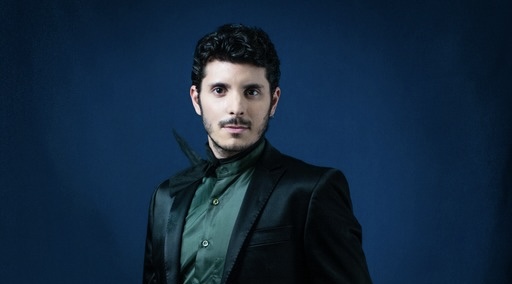
Q & A: Tenor Allan Clayton on Schubert’s ‘Winterreise,’ His Process & An ‘Interesting’ Crossroads With Future Projects
By David Salazar(© Sim Canetty-Clarke)
At the pinnacle of the song cycle is Schubert’s “Winterreise.” It is a work that has been mythologized and has influenced generations of composers thereafter including Mahler, Britten, and Maury Yeston to name just a few. While written for tenor, it has nonetheless been recorded and performed by lower male voices as well as a plethora of female voices over the years.
The piece has always been popular, but over the past few decades, its popularity has soared to the point that several opera companies around the world have started to present it in a staged format.
Back in 2017, the Mostly Mozart Festival presented a staged version by Hans Zender that The New York Times called a “funky rethinking.” In 2014, William Kentridge took on the cycle, also in New York at Alice Tully Hall.
Now the cycle heads to Australia where Musica Viva Australia will present a staging by Lindy Hume, with videography by David Bergman; the new production will also incorporate the work of Australian painter Fred Williams.
At the center of it all, however, will be tenor Allan Clayton and pianist Kate Golla.
Clayton is coming off his Metropolitan Opera debut, where he appeared in the title role of “Hamlet.” He is set to return to New York next season in the title role of “Peter Grimes.” Ahead of his “Winterreise” performances in Australia, which open on July 12, 2022, OperaWire spoke to Clayton about this iconic song cycle, his process as an artist, and his future projects.
OperaWire: What was your first experience of Schubert’s “Winterreise?” What struck you most about the piece during this first experience?
Allan Clayton: A friend made me listen to a recording of Dietrich Fischer-Dieskau singing the cycle when I was at university, telling me that it would change my life. I hadn’t heard lieder before, so it was certainly a revelation!
OW: What does Schubert’s “Winterreise” mean to you? What do you believe Schubert was exploring with this work?
AC: There are far more qualified people to talk about what Schubert was exploring, but it seems obvious that he was aware of his own mortality in some way. To be so bold in his vocal and harmonic writing suggested that he knew he had limited time to express himself in this way.
OW: How has your interpretation of the work changed over the years?
AC: As with any piece, interpretation changes over time and with different life experiences! Any work like this with themes of love, loss, and death will ring true with us today and in another two hundred years. I first sang the piece as a post-grad at music college so I guess I’m a little more weather-beaten now…
OW: What is the most challenging aspect of interpreting and performing this work?
AC: It’s a real challenge to maintain focus and vocal freshness throughout the hour or so. Communicating with an audience with no break, means it’s inevitable that they will drift in and out of concentration – unfortunately, Kate and I can’t do the same! It’s vital to get everyone back on board for the key moments in the cycle, whether that’s with text, dynamic or musical pacing.
OW: Do you have a favorite piece in the cycle?
AC: I have lots of favorites! I probably wake up singing Die Krähe most of all.
OW: You will do this production of the cycle in Australia and then do it again later at the Barbican. What excites you most about Lindy Hume and David Bergman’s interpretation and approach to the work? How do you think it will impact your approach?
AC: As I write this, we haven’t yet begun rehearsals so it’s difficult to say exactly how the production will impact things. From the designs I’ve seen and conversations with Lindy though, it will be exciting to see how the Fred Williams paintings enhance the experience for the audience. Having various images projected will, I hope, allow the audience to interpret the text and music in different ways.
OW: What is your approach to learning a new work? What is your process as an artist and a singer?
AC: The approach depends on the repertoire, but I always start with the texts. I’m lucky that singing in choirs as a kid taught me to be a good sight-reader, so I can pick up the notes quite quickly after that. Then I love to dig a little deeper and find connections between the two – links between scenes/songs, what a composer may have been thinking when they set certain passages. It’s like being Hercule Poirot, but with a beard and no definite outcome.
OW: What are some of the greatest challenges you have had to overcome to this point in your career and what helped you overcome them?
AC: Finding new ways to tell fundamentally the same story/inhabit similar characters is an ongoing challenge. I’m very lucky to work with some great directors who don’t just let me phone it in on stage.
Constantly being away from home is also pretty disastrous for a fully functional social life, and means that I have completed the internet.
OW: What do you value most as an artist when picking new repertory? What do you look for?
AC: It has to be music that excites me – emotionally or technically – and, failing that, mediocre music in a new way with colleagues who will provoke and challenge. Just occasionally, it’s also what pays the bills!
OW: What are some upcoming projects that you are excited to take on?
AC: I’ll be singing “Peter Grimes” at the Met in the autumn, which will be fun. I’ve just finished singing Brett Dean’s Hamlet there, and the chorus and orchestra were already excited to start working on that absolute barnstormer of a piece, after the success of Denmark’s moodiest Prince. It’s my second production, so it’ll be interesting to see what new things I can find in the character/music.
OW: What are some roles or operas that you want to perform that you have not yet had the chance to engage with?
AC: I’m at a weird and interesting crossroads in terms of future projects. No one really knows how to cast me – I’m not the traditional leading man, and my voice doesn’t fall into a specific category – so who knows? I could end up a dramatic mezzo by the end of next year.


